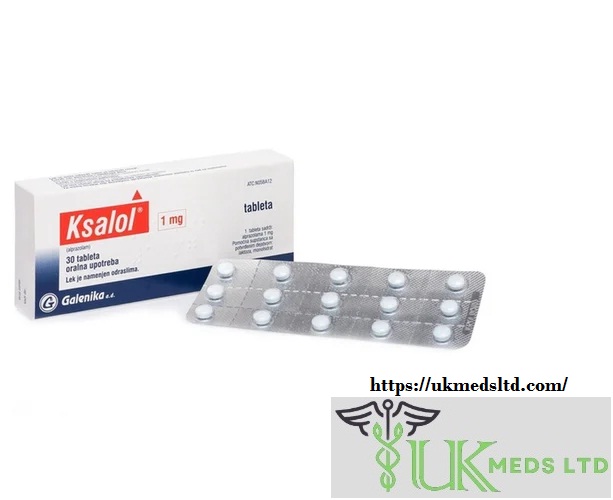Preface: Ksalol Tablets
Ksalol 1 mg, a medication predominantly prescribed for anxiety disorders and panic attacks, contains the active ingredient alprazolam. Alprazolam is a member of the benzodiazepine class of drugs, which are known for their sedative and anxiolytic properties. Ksalol tablets work by affecting neurotransmitters in the brain, leading to a calming effect. Despite their effectiveness, Ksalol tablets come with a range of potential side effects that patients should be aware of before starting the medication.
How Ksalol Works: Ksalol Tablets
Ksalol tablets contain alprazolam which is a benzodiazepine that enhances the activity of gamma-aminobutyric acid (GABA) inside the brain. By increasing GABA activity, alprazolam helps to reduce the symptoms of anxiety and panic disorders, making it easier for individuals to manage their condition. Typically, Ksalol is prescribed for short-term management of severe anxiety or panic attacks due to its potential for dependence and tolerance on long-term use.
Common Side Effects: Ksalol Tablets

Like all medications, Ksalol tablets can cause side effects. Some of the most common side effects associated with Ksalol include:
1. Drowsiness and Sedation: Due to its sedative properties, Ksalol can cause drowsiness, which may affect an individual’s ability to perform tasks that require alertness, such as driving or operating machinery.
2. Dizziness and Lightheadedness: Ksalol can lead to feelings of dizziness or lightheadedness, which are often linked to the medication’s impact on the central nervous system. This can be particularly noticeable when standing up quickly, leading to a risk of falls or accidents.
3. Fatigue: Persistent tiredness or fatigue is another common side effect. This can interfere with daily activities and overall quality of life, necessitating careful management of the medication’s dosage and timing.
4. Dry Mouth: Some individuals may experience a dry mouth while taking Ksalol. This can be uncomfortable and may require increased hydration or the use of saliva substitutes.
Serious Side Effects: Ksalol Tablets
While less common, there are more severe side effects associated with Ksalol that warrant immediate medical attention:
1. Cognitive Impairment: In some cases, patients may experience problems with memory, concentration, or confusion. This cognitive impairment can affect daily functioning and is a significant concern, particularly for long-term users.
2. Coordination Problems: Issues with coordination or motor skills can occur, which may increase the risk of accidents and falls. This side effect is particularly concerning for individuals who are required to perform tasks that demand precise coordination.
3. Allergic Reactions: Though rare, some individuals may experience allergic reactions to Ksalol, including symptoms such as rash, itching, swelling, severe dizziness, or difficulty breathing. .
4. Dependence and Withdrawal: One of the more serious risks of long-term Ksalol use is the potential for physical dependence and withdrawal symptoms upon discontinuation. Symptoms of withdrawal can include agitation, tremors, sweating, and seizures. Therefore, Ksalol should only be used as prescribed, and any changes in dosage should be managed by a healthcare provider.
Interactions with Other Medications: Ksalol Tablets
Ksalol can interact with various other medications, potentially increasing the risk of adverse effects or reducing the efficacy of treatment. For example, combining Ksalol with other central nervous system depressants, such as alcohol or opioids, can enhance sedative effects and increase the risk of respiratory depression. Patients should inform their healthcare providers of all other medications they are taking to avoid harmful interactions.
Conclusion: Ksalol Tablets
Ksalol tablets, containing alprazolam, can be highly effective in managing anxiety and panic disorders, but they are not without risks. Common side effects include drowsiness, dizziness, and fatigue, while more severe effects can involve cognitive impairment and coordination issues. The potential for dependence and withdrawal further underscores the importance of using Ksalol under strict medical supervision. Patients should discuss their medical history and other medications with their healthcare provider to ensure safe and effective use of Ksalol. Always follow prescribed guidelines and consult with a healthcare professional if any concerning symptoms arise.


